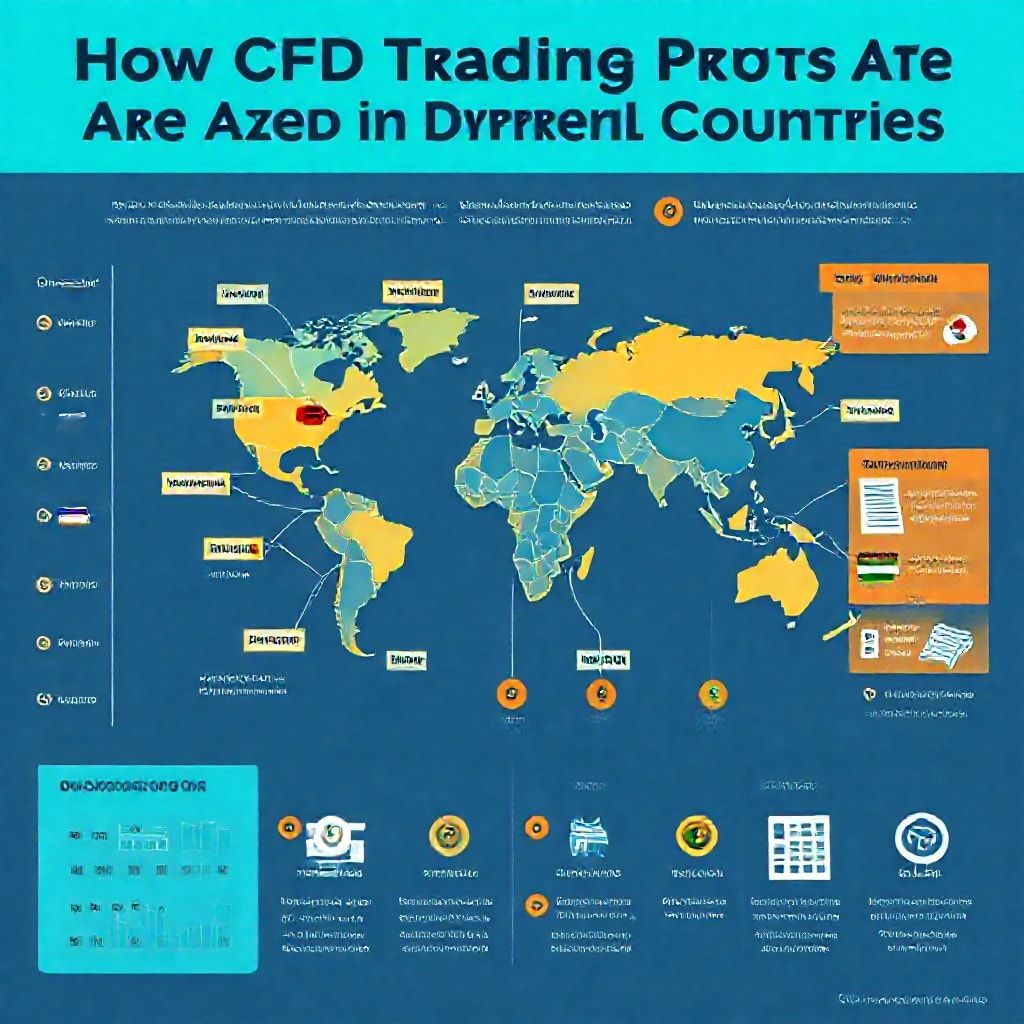How are CFD trading profits taxed in different countries?
How Are CFD Trading Profits Taxed in Different Countries?
Intro: CFD trading feels borderless, but taxes don’t. Traders split their time between markets, wallets buzz with leverage, and suddenly you’re staring at tax forms in languages you barely speak. This piece lays out the big picture: how CFD profits are typically taxed across countries, what drives those rules, and practical steps you can take to stay compliant without stifling your strategy. It’s not legal advice, but it’s a reality check you can act on.

Tax landscape in practice
- CFDs are derivatives, so tax fate often follows residency and the character of the activity. In many places you’ll land in one of two camps: profits treated as capital gains (taxed at a rate that depends on how long you held the position) or as ordinary income (taxed at your regular rates). Some jurisdictions carve out a separate treatment for professional traders or for brokers’ VAT/GST when services cross borders. The exact line depends on how often you trade, whether you run it like a business, and where you’re tax resident.
- Record-keeping matters. In busy years you’ll need trade logs, leverage data, broker statements, and cost bases. Clean records ease both your annual return and any audits.
Country snapshots (patterns you’ll often see)
- United Kingdom: Retail CFD profits are generally treated under capital gains rules or as miscellaneous income depending on activity patterns; losses can usually be offset against gains in the same year or carried forward.
- United States: CFDs are not widely offered by US brokers, but if you trade via offshore routes you’ll face familiar tax handling (capital gains or ordinary income) with the added layer of potential self-employment concerns if activity looks like business trading.
- Australia: Profits can be taxable as either capital gains or ordinary income depending on whether you’re an investor or a trader; the key is activity level and intent, plus precise record-keeping.
- Canada and parts of Europe: Many jurisdictions follow a similar split—capital gains for typical investors, ordinary income where the activity resembles a business. The exact treatment can hinge on frequency, holding periods, and a trader’s intent.
- Singapore/UAE: In places with no or low personal income tax, CFD profits may escape personal income tax unless the activity constitutes a business, but other taxes (like GST/VAT or corporate tax) can still apply depending on structure and activity.
Why this matters for traders
- The tax tag you’re assigned influences net performance. If profits are capital gains, you might benefit from favorable treatment on long holds; if treated as income, your marginal rate and social charges bite harder.
- Leverage compounds both risk and potential tax timing considerations. Some jurisdictions allow you to realize gains or losses faster with margin, which can affect when you report and how you match losses to gains across years.
Reliability tips and leverage strategies
- Keep a robust record system: export monthly statements, track cost basis, and note the purpose of each trade (investment vs. trading as business).
- Consider tax-efficient practices within your local rules: harvest losses where allowed, be mindful of wash-sale rules where they exist, and understand any regional deferral opportunities.
- Use professional guidance. Tax rules for CFDs are jurisdiction-sensitive and change with policy shifts. A local tax pro helps tailor your approach to your residency, broker geography, and trade style.
- About leverage: aggressive leverage can amplify both profits and tax consequences. Favor disciplined risk controls and documented strategies to separate legitimate trading activity from opportunistic gambles.
DeFi, futures, and the evolving tax landscape
- As decentralized finance grows, tax reporting becomes trickier. Crypto-like profits from DeFi, yield farming, or smart-contract trades are increasingly treated under local crypto or commodity rules, not the same as traditional CFDs. The challenge: many tax authorities still map DeFi gains to ordinary income, capital gains, or business income in ways that aren’t crystal clear yet.
- The future trend points to intelligent tax tech and better reporting tools. You’ll see more standardized data feeds, on-chain transaction histories, and AI-assisted tax prep that harmonizes CFD, FX, stock, and crypto activity.
Future trend notes
- Smart contracts and AI-driven trading are likely to reshape how you place orders and how you report them. Expect tighter integration between execution data, risk controls, and tax tagging so you can optimize both performance and compliance.
- A slogan you might see: Tax-smart trading, powered by clarity and code. Another: Know the tax terrain, fuel smarter CFD moves.
Bottom line
Tax rules for CFD profits are not universal; they ride on where you live, how you trade, and who licenses your broker. Stay curious, stay organized, and lean on local expertise. In a world where markets cross borders faster than news, a tax-aware toolkit keeps your strategy focused and your growth steady.

